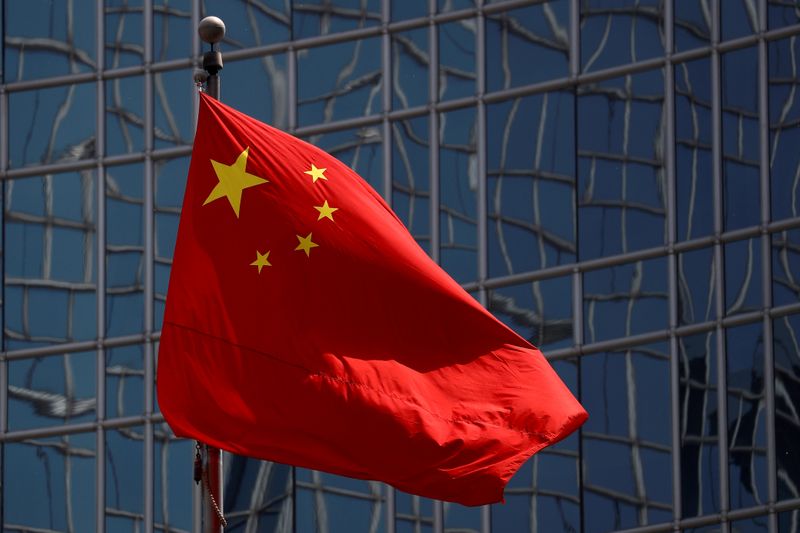By Brenda Goh and Se Young Lee
(Reuters) - Some damage to Sino-U.S. ties is "beyond repair" amid a new wave of Trump administration measures to counter China, Chinese state media warned, amid growing rancour underlined by an ugly Twitter spat between a U.S. senator and Chinese journalists.
Relations between the world's two largest economies have sunk to their lowest point in decades over issues such as trade, technology, security, human rights and COVID-19.
In an editorial, the government-backed China Daily said it viewed as "worrisome signs" Washington's decision to limit visitor visas for members of the Chinese Communist Party and their families and a ban on Xinjiang cotton imports.
"Even if the incoming administration has any intention of easing the tensions that have been sown, and continue being sown, some damage is simply beyond repair, as the sitting U.S. president intends," the paper added.
Relations between the two countries are being shifted to "a dangerous path", the editorial said.
The U.S. government also added Chinese chipmaker SMIC and oil giant CNOOC to a blacklist of alleged military companies, prohibiting U.S. investors from buying securities issued by the firms starting late next year.
China's ambassador to the United States became the latest of the Asian nation's senior officials to signal a desire to reset the increasingly confrontational relationship as President-elect Joe Biden prepares to take office in January.
"There are always differences between the two countries. None of them justifies confrontation and war, cold or hot," Cui Tiankai said on Twitter.
"With sufficient mutual respect and mutual understanding, we are capable of managing these differences so that they would not derail the entire relationship," he said on Thursday.
A person familiar with the matter also told Reuters U.S. prosecutors are discussing a deal with lawyers for Huawei chief financial officer Meng Wanzhou to resolve criminal charges against her and end her detention in Canada, which would bring an end to a major source of tension.
It is unclear whether a Biden administration would bring a dramatic shift, however.
The Democrat told the New York Times this week that he would not remove existing tariffs set by the Trump administration against China for now.
Legislation targeting China or Chinese officials over charges of human rights abuses in the western region of Xinjiang and crackdown against pro-democracy activists in Hong Kong have won broad bipartisan support in Congress, as well, further suggesting current policies towards China will stay.
An exchange of insults on Thursday between U.S. Senator Marsha Blackburn and China Daily journalist Chen Weihua underscored persistent animosity.
Blackburn, a Republican and one of the more outspoken China critics, claimed without evidence on Twitter that China "has a 5,000 year history of cheating and stealing."
In response, Chen accused Blackburn of being the most "racist and ignorant" U.S. senator he has seen and calling her a "lifetime bitch."
Blackburn responded by calling Chen a "puppet" in Chinese President Xi Jinping's "dream for global domination" and vowed that the U.S. would not bow to "sexist communist thugs."

Hu Xijin, the editor-in-chief of China's Global Times newspaper, also criticised Blackburn on Twitter on Friday, saying it was a pity her "cognitive level is still as low as a monkey's."